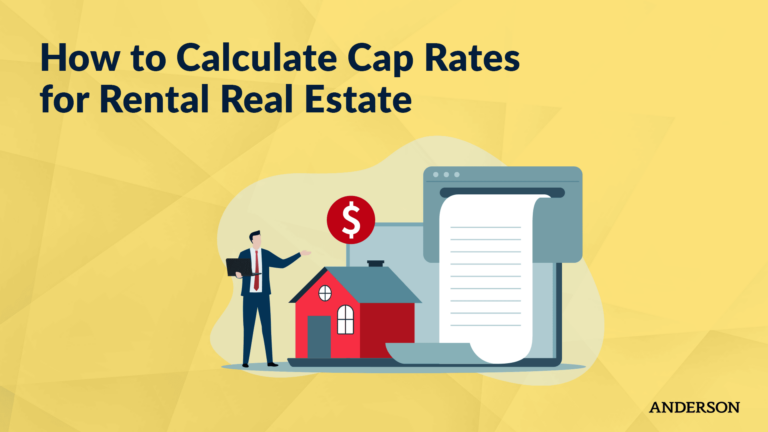How about that ride in? We covered a lot, and for this 100th episode, we’re giving you the highlight reel.
In this episode of Coffee with Carl, attorney Carl Zoellner looks back on some of our most popular episodes and highlights key takeaways.
Looks like we made it.
Hard to believe, but today marks the 100th episode.
After sitting down with our marketing team and trying to concoct the perfect episode to show our gratitude, we turned up with nothing….
And then it hit me.
A series highlight reel.
So, today I want to hit on some of the most popular videos of the year and do a quick update and summary if there’s anything that needs to be rehashed.
Without further ado, let us journey back to our first video of review: “do you need bank accounts for your rental properties and for just real estate investors” in general?

Rental Property Bank Accounts
When we start talking about having multiple entities, having multiple bank accounts can seem pretty daunting to a lot of folks out there. As a quick summary, there’s a kind of good, better, and best scenario.
If we’re looking at the best scenario, it would be, yes, you should have a bank account for each of your business entities, because if you intend on relying that each of those entities should be treated as a separate business, generally we would expect a separate business to have a separate bank account. So yes, as a best practice, you’d be looking to have a bank account for each entity you have set up.
Now, if that’s the best, let’s take a look at it better. The better scenario would consider do you need or require to have a bank account for each LLC? No, we know you should, but if you don’t, I would say you can limit the number of bank accounts you have not to zero, but you can limit the number of bank accounts you have if you have impeccable bookkeeping. You’d need to be utilizing some sort of professional bookkeeping service to make sure those records in accounting are separable from one business to another within your entity’s structure.
Now, the kind of good scenario would have one bank account that does everything. To me, this raises a level of concern about intermingling or other potential veil piercing factors you may step into.
I would look at that as a last scenario and not an endorsement to do the bare minimum. As a quick recap, the suggestion is going to be from a best practice standpoint. Each entity you own should have a bank account.
Entities for Stock Trading?
Now, to the next video in review: stock trading and why you need entities. I’m not going to go too in-depth for this, as we’ve got a detailed video on it. But the basic idea here is, with stock trading from a liability standpoint, we’re concerned about the liability you can bring on to your brokerage account, not the liability your brokerage account brings on you.
Nobody’s going to slip and fall on a stock share and sue you for it. What’s more likely to happen is you get in a car accident, your spouse, your minor child gets in a car accident, and you get sued (#knockonwood). I’m not superstitious, but… I’m a little solicitous. You have to be as a lawyer.
From a liability standpoint, we’re looking at what makes sense or how to protect that account because inside liability is not the biggest concern. Outside liability is. And from the tax perspective, if you make an entity a partnership that’s going to do the trading, it provides some unique tax planning opportunities once you loop that corporation into your business to be able to provide some of that tax benefit that a corporation has, that us as individuals may not have.
So that corporate taxation or the differences between corporate taxation and individual taxation is what creates a lot of the planning opportunities we take advantage of as small business owners.
C-Corp Salary
All right, chosen video number three: paying yourself a salary from your C corporation. I bet I could guess why this one was so popular, because people take suggestions on what their businesses are supposed to look like on the front end, but as they start to make money and try to get money out of those businesses, a lot of times they’ve forgotten the overall strategy to pull money out.
When we start talking about pulling money out of a C corporation, my preference is, and this is sort of depending on your overall plan, but if you have a large backlog of reimbursements built up, that’s a great way to pull cash out because reimbursements come out at 0% tax.
If you’re overcoming your reimbursements from the corporate perspective and are doing the appropriate level of tax planning, then your other option would be to potentially pay a salary which is deductible to the corporation, but would be taxable as income to you. Or the third version, which is the most common, would be if we’re looking at is there an opportunity to pay a dividend? The good part of a dividend payment would be that the taxation on the dividend payment is at long-term capital gains rates, so that’s going to be usually a lower tax rate.
The downside is it’s not deductible to the corporation to pay a dividend, so it is the purest form of that double taxation we’re supposed to fear so much. That’s a little tongue-in-cheek joke there because it’s not deductible to the corporation to pay a dividend. As an individual you would be paying the taxation or excuse me, taxes on the income at long-term capital gains rates.
The best practice from paying yourself from a C corporation would be to take advantage if you have reimbursements because you get them at 0% tax. If you’re looking to be more lendable or just looking to get money out of your corporation, then we need to look at and balance the difference between paying a salary out of that corporation or taking a dividend payment.
Quick primer, that’s for our C corporation that that question was most popular. Onto number four, different types of investment property loans.
So different types of investment property loans is actually one of our more recent videos from Clint. I’ve touched on it a few times as well. I would say Clint’s video is a great resource from that regard. Really, it’s going to depend on the type of investments you’re doing. Is it a performing property? It’s really just an explanation of the different types of loans that are out there.
I would actually utilize, well, I’m certainly partial to Coffee with Carl, I would actually use number four for the different types of investment property loans as a lead, as a suggestion to make sure you’re taking advantage and taking a look at Clint’s YouTube channel as well because there is a ton of great information on different types of property loans on there, as well as Toby’s videos that are out talking in more detail on the BRRRR method that many of you are so familiar with.
Leveraging Section 280A
Now, the last one is a crowd favorite here, especially when we’re presenting in person or we’re going through tax workshops. The internal revenue code section 280A, also referred to as the 14 day rule or the Augusta Rule, which is you can rent out your personal residence to your corporation in this scenario for up to 14 days.
The income you’d recognize as an individual is not reported and not taxable, and the expense the corporation paid to rent the property is deductible to the corporation. From a tax perspective this is sort of the sweet spot as a business owner. And actually in one of our classes we teach at our TaxWise workshops, we try to focus on this. We will not only want you to get the tax benefit as an individual, but the sweet spot is where the corporation can also take a benefit from a tax perspective as well.
My corporation can pay me 14 days to rent my residence. I’m going to have a real meeting with real substance and my corporation could pay me income, which is 0% tax to me, and the corporation could take a deduction for it because it’s a lease expense to the corporation just as if it was leasing a property from anybody else.
Now, the most common followup to that is, okay, so if my corporation can rent my property from me, can all of my other entities rent from me? Now, the 14 days is the benefit that goes to the taxpayer. So you get 14 days as an individual, period. Now, if you have, an elderly parent or grandparent or maybe a struggling child adult, they can certainly rent you their place for up to 14 days.
But as far as your individual benefit, you’re limited, the taxpayer is limited to the 14 days. And with that, that is our 100th episode.
I hope everybody enjoyed the content here and leading to here.
Thank you for your support, and here’s to many more!
The Takeaway
Until next time, please continue taking advantage of all of our free content out there. I love seeing our clients at our webinar classes or chatting with us online. On the other side of that, if you’re not yet a client, I would encourage you to have your FREE Consultation, and we look forward to working with you.
Resources mentioned in this video:
- Join our next Tax & Asset Protection event to learn more advanced tax minimization & entity structuring strategies
- Subscribe to our YouTube channel to make sure you never miss the latest strategies & updates
- Check Out Clint’s Video on Property Loans Here
Got an idea for a future Coffee with Carl? Send it to Carl at cwc@andersonadvisors.com.
Free Strategy Session with an Anderson Advisor
Receive a detailed risk assessment to assist in lowering problem areas that could wipe out all of your assets with one wrong move. Speak with an Anderson Professional Advisor to get your FREE Strategy Session. Limited-Time offer: FREE (a $750 value.)








